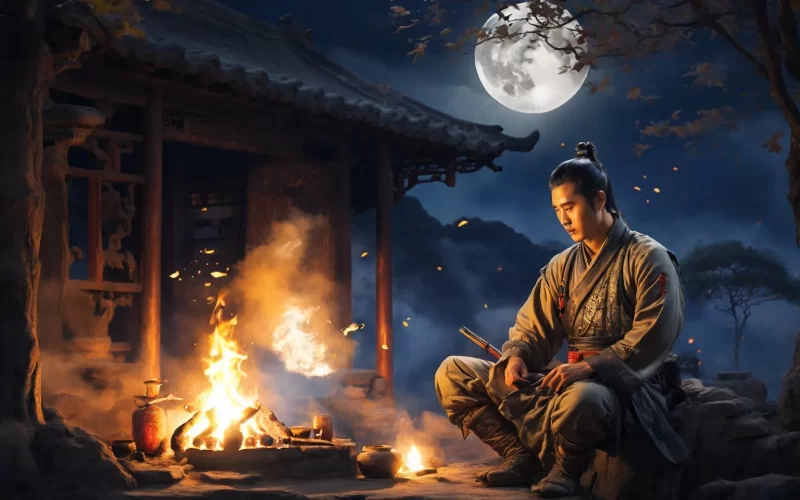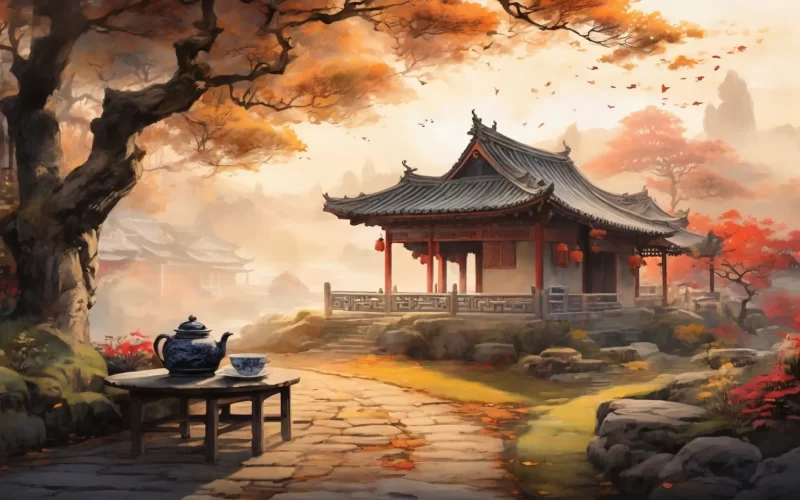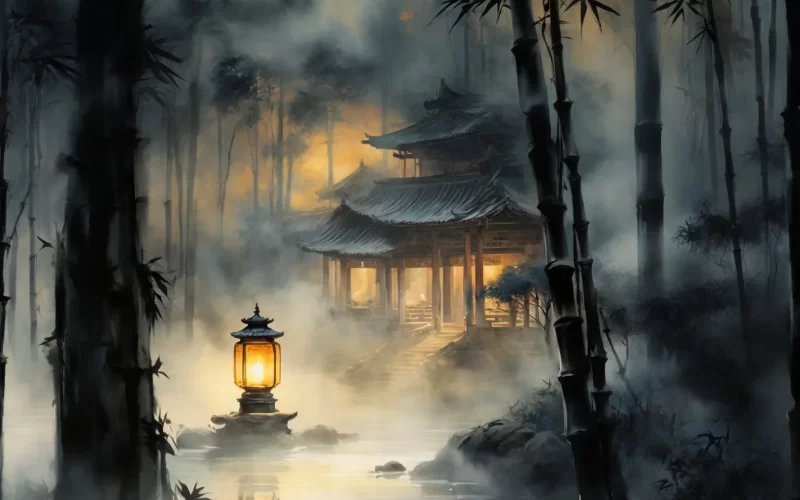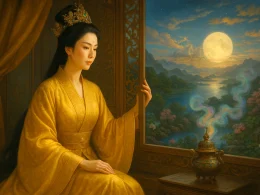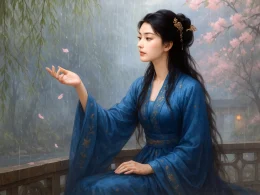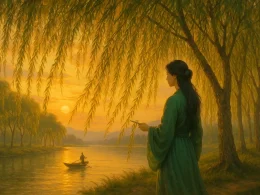Against the City of the Yellow Dragon
Our troops were sent long years ago,
And girls here watch the same melancholy moon
That lights our Chinese warriors --
And young wives dream a dream of spring,
That last night their heroic husbands,
In a great attack, with flags and drums,
Captured the City of the Yellow Dragon.
Original Poem
「杂诗」
沈佺期
闻道黄龙戍,频年不解兵。
可怜闺里月,长在汉家营。
少妇今春意,良人昨夜情。
谁能将旗鼓,一为取龙城。
Interpretation
This poem was composed during a period of frequent border conflicts in the Tang Dynasty, when the northern Huanglong garrison saw continuous warfare. With conscripted husbands failing to return home year after year, anti-war sentiments grew among the populace. Though living in the prosperous High Tang era, Shen Quanqi deeply understood the suffering brought by endless wars. Using the traditional yuefu theme, he channels the emotions of a young wife longing for her husband, expressing both war-weariness and a yearning for peace.
First Couplet: "闻道黄龙戍,频年不解兵。"
Wén dào Huánglóng shù, pín nián bù jiě bīng.
They say at Huanglong garrison, the battles never cease— Year after year, the wars persist without release.
The opening lines directly address the relentless conflict at the border, conveying the poet’s frustration and sorrow over the unending violence.
Second Couplet: "可怜闺里月,长在汉家营。"
Kělián guī lǐ yuè, cháng zài Hàn jiā yíng.
How pitiful—the moon that once lit her chamber’s air, Now shines upon her man in the camp’s despair.
The moon, a classical symbol of shared longing, bridges the distance between the wife at home and her husband at war. Its light connects their separate worlds, deepening the sense of mutual yearning.
Third Couplet: "少妇今春意,良人昨夜情。"
Shàofù jīn chūn yì, liángrén zuó yè qíng.
This spring, her heart is heavy with untold care; Last night, his dreams were filled with memories rare.
The contrast between "this spring" (her present sorrow) and "last night" (his lingering affection) underscores their enduring bond despite separation. The restrained yet poignant phrasing conveys deep emotion.
Fourth Couplet: "谁能将旗鼓,一为取龙城。"
Shéi néng jiāng qígǔ, yī wèi qǔ Lóngchéng.
Oh, who will raise the banners, sound the drum’s fierce call, And storm the Dragon City, ending this strife once for all?
The closing lines voice a desperate plea for a hero to break the stalemate, conquer the enemy stronghold, and finally bring the soldiers home. It blends hope for victory with a deeper longing for peace and reunion.
Holistic Appreciation
The poem unfolds along an emotional thread, transitioning from lamenting war to yearning for reunion—expanding from boudoir longing to frontier suffering. While focused on feminine sentiment, it subtly conveys a cry for peace. The poet places the soldier and pining wife under the same moon, separated by vast distance yet united in shared emotion, creating an ingeniously composed scene with profound resonance. Verses like "the moon over her chamber" and "the Han army camp" use moonlight as a connective thread, naturally bridging emotions to craft a tender yet poignant atmosphere.
Artistic Merits
The poem masterfully blends scene and emotion, revealing grand themes through intimate details. It employs contrast and temporal dislocation to deepen emotional impact, particularly in the central couplets: the spatial shift between "boudoir moon" and "army camp," and the temporal juxtaposition of "this spring's longing" with "last night's love," vividly portraying mutual yearning. With concise language and nuanced feeling, the poet intertwines personal sentiment with social commentary, expressing strong anti-war sentiment and aspirations for peace. This work stands as one of Shen Quanqi's finest Music Bureau-style poems, excelling in both ideological depth and artistic merit.
Insights
Beyond reflecting the High Tang society's wartime introspection, this poem demonstrates how gentle lyricism can advocate peace. By depicting ordinary people's separation, it makes war's personal toll palpable, reminding us to cherish harmony and appreciate authentic human connection. The work remains a timeless meditation on conflict's emotional costs and the universal desire for reunion.
Poem translator
Kiang Kanghu
About the Poet
Shen Quanqi (沈佺期, c. 656 - c. 715), a native of Neihuang County in Henan Province, was a renowned Tang dynasty poet. Along with Song Zhiwen, he was collectively known as "Shen-Song" (沈宋), recognized as pivotal figures in standardizing the regulated verse (律诗) form. Celebrated for his rigorous adherence to poetic rules and metrics, Shen exerted profound influence on the development of "modern-style poetry" (近体诗).






